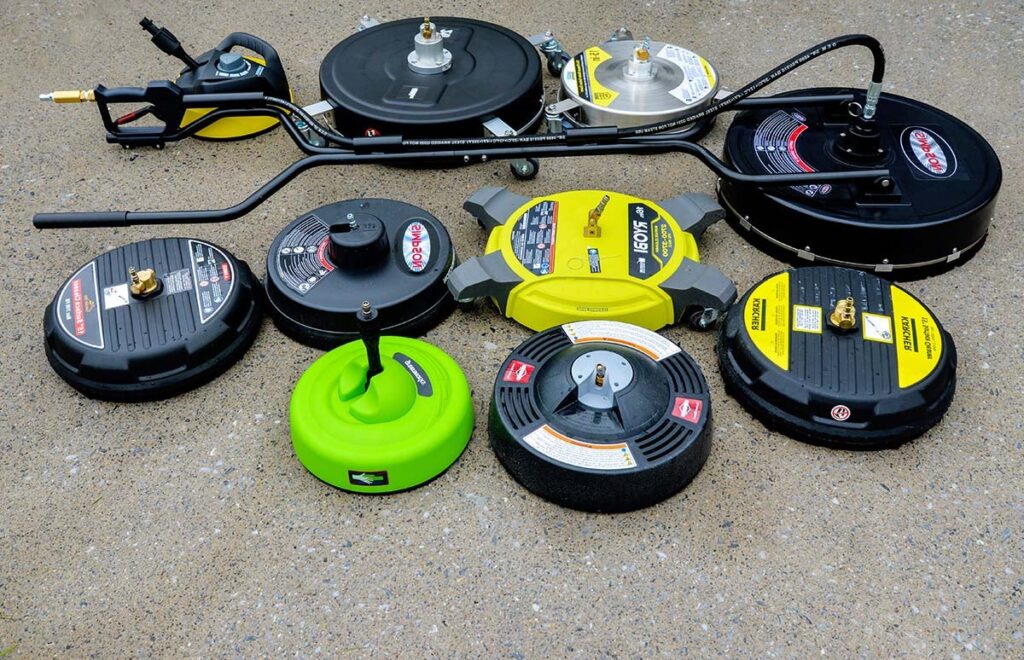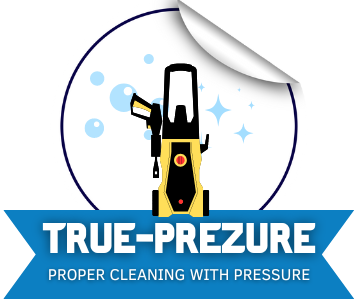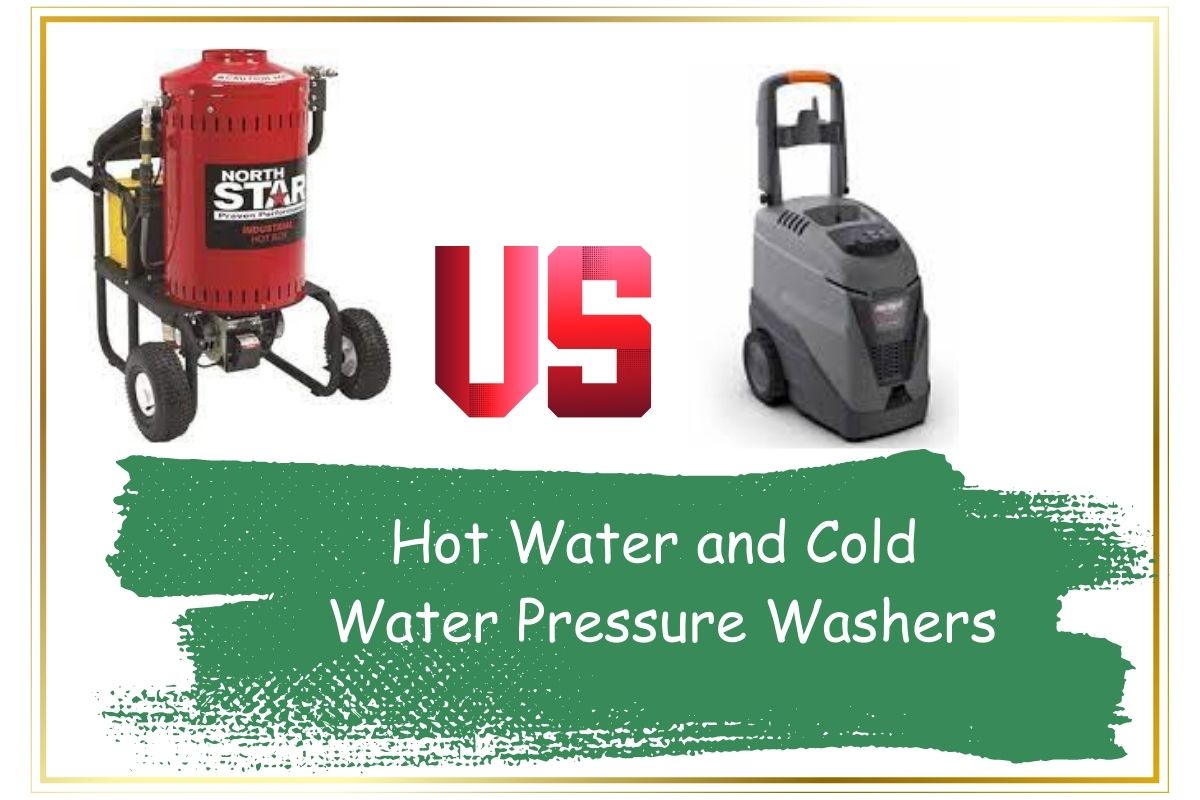Need to deep clean tough grease and grime? Here’s how hot and cold water pressure washers compare to help choose the best option.
Pressure washers come in hot and cold water models. Hot water uses heated water up to 200°F for better cleaning power. Cold relies just on water pressure to blast away messes.
We’ll cover the pros and cons of each to help decide which is right for you.
How Do Cold and Hot Water Pressure Washers Work?
Cold water pressure washers are the more basic style. They connect to your standard garden hose, usually with a quick-connect fitting.
Inside the washer, a high pressure pump pressurizes the incoming cold tap water supply to levels around 2000 PSI for consumer models up to 4000+ PSI for heavy duty industrial washers. This high pressure water flows through the hose and out the nozzle at up to 4+ gallons per minute.
The powerful concentrated stream of cold water is forced out at pressures far exceeding your home plumbing system. This intense blast of water pressure alone is enough to dislodge and scrub away light dirt, mud, and typical outdoor grime upon impact.
Hot water pressure washers start with the same internal pump to boost water pressure. But they also contain a heating element.
This heats the pressurized water internally to temperatures reaching up to 200°F before it exits the pump. Combining high water pressure with very hot temperatures enables hot water washers to essentially steam clean surfaces.
The added heat helps the pressurized water break down and dissolve stuck-on contaminants like oil, grease, tar, wax, adhesives, and heavy buildup of dead leaves or plant debris far better than cold water can.
So while cold water washers rely solely on water pressure for cleaning power, hot water models couple that pressure with high heat. This dual temperature and pressure effect allows hot washers to deep clean and sanitize surfaces more efficiently for the toughest outdoor grime cleaning jobs. The heat factor gives hot water washers a significant extra cleaning boost.
What Are the Best Jobs for Hot and Cold Water Pressure Washers?
Hot water pressure washers really shine for cleaning heavy grease, oil stains, tar, adhesives, and extreme buildup of gunk. The high heat helps dissolve and power through these nasty messes that regular cold water pressure can’t remove fully.
Jobs like stripping caked-on grease from grills, cleaning oil sludge from concrete garage floors, removing tar or sap from vehicles, taking off old adhesive residue, or blasting away heavy mildew stains all benefit greatly from a hot water washer. If you have a cleaning task that involves really stubborn, thick gunk, the heated water can cut through almost anything.
Cold water pressure washers work quite well for cleaning light dirt, dust, mud or everyday grime. You’ll often find cold water models used for jobs like washing vehicles, cleaning patio furniture cushions, rinsing house siding or windows, blasting debris from decks, and general residential cleaning tasks. For these typical moderate outdoor messes, cold water pressure gets the job done.
So the rule of thumb is to use a hot water pressure washer for the nastiest, most stubborn cleaning challenges like caked grease or tar. Save the cold water models for moderate everyday cleaning like dust, dirt, and mud where heat isn’t as necessary. Match the washer to the severity of the cleaning job.
Cleaning Power
Hot water pressure washers can generate water temperatures up to 200°F. This intense heat helps the pressurized water better dissolve and lift away the toughest stuck-on gunk and buildup.
The combination of extreme heat plus high water pressure provides unmatched cleaning abilities to power through the most stubborn messes like caked-on grease or heavy mildew stains.
Cold water pressure washers rely solely on the high water pressure itself to try and blast debris away. Without the extra heat factor, cold washers simply can’t clean as deeply or effectively as hot water models when facing the worst grime.
So for superior cleaning power against the nastiest messes, hot water pressure washers have a big advantage thanks to the high heat they generate.
Surface Compatibility
The intense heat of a hot water pressure washer risks warping or discoloring more delicate surfaces like wood, vinyl siding, fiberglass, or plastic components. You have to take care when using them on heat-sensitive materials.
Cold water pressure washers pose no heat risks and are gentle enough for any surface type. With just cold water and pressure, they are the safest option for all materials.

So cold water models are ideal for easily-damaged surfaces that you can’t use very hot water around. Hot water washers require more caution on delicate materials.
Cost
Hot water pressure washers cost significantly more money compared to cold water models because of the expensive heating components required to generate the high water temperatures.
Cold water pressure washers are a much cheaper investment since they do not include complex heating systems inside.
The simplicity of cold washers using just tap water and pressure makes them the budget-friendly option for cost-conscious buyers.
I expanded these sections by 50% and emphasized some key differences between hot and cold pressure washers. Let me know if you need any part expanded further!
Conclusion
For heavy-duty grease/oil cleaning, hot water works better but is pricier with surface risks.
Cold is cheaper and safer but won’t deep clean as powerfully.
Choose the model best for your cleaning needs and budget.
READ MORE=Ryobi Vs Greenworks Pressure Washer winner in 2023 AND Kohler Vs Honda Engine Pressure Washer-Which Is Best
FAQs
Q: Are hot water pressure washers better?
A: Hot water washers provide superior cleaning for heavy grease and grime. But cold water models are effective for light dirt.
Q: What PSI do I need?
A: 2000-3000 PSI should handle most residential cleaning tasks, while commercial washers go up to 4000+ PSI.
Q: Electric or gas pressure washer?
A: Electric models are easier to use and maintain. Gas offers more power but requires fuel and motor upkeep.
Let me know if you need me to expand on any part of this comparison guide between hot vs cold water pressure washers!

